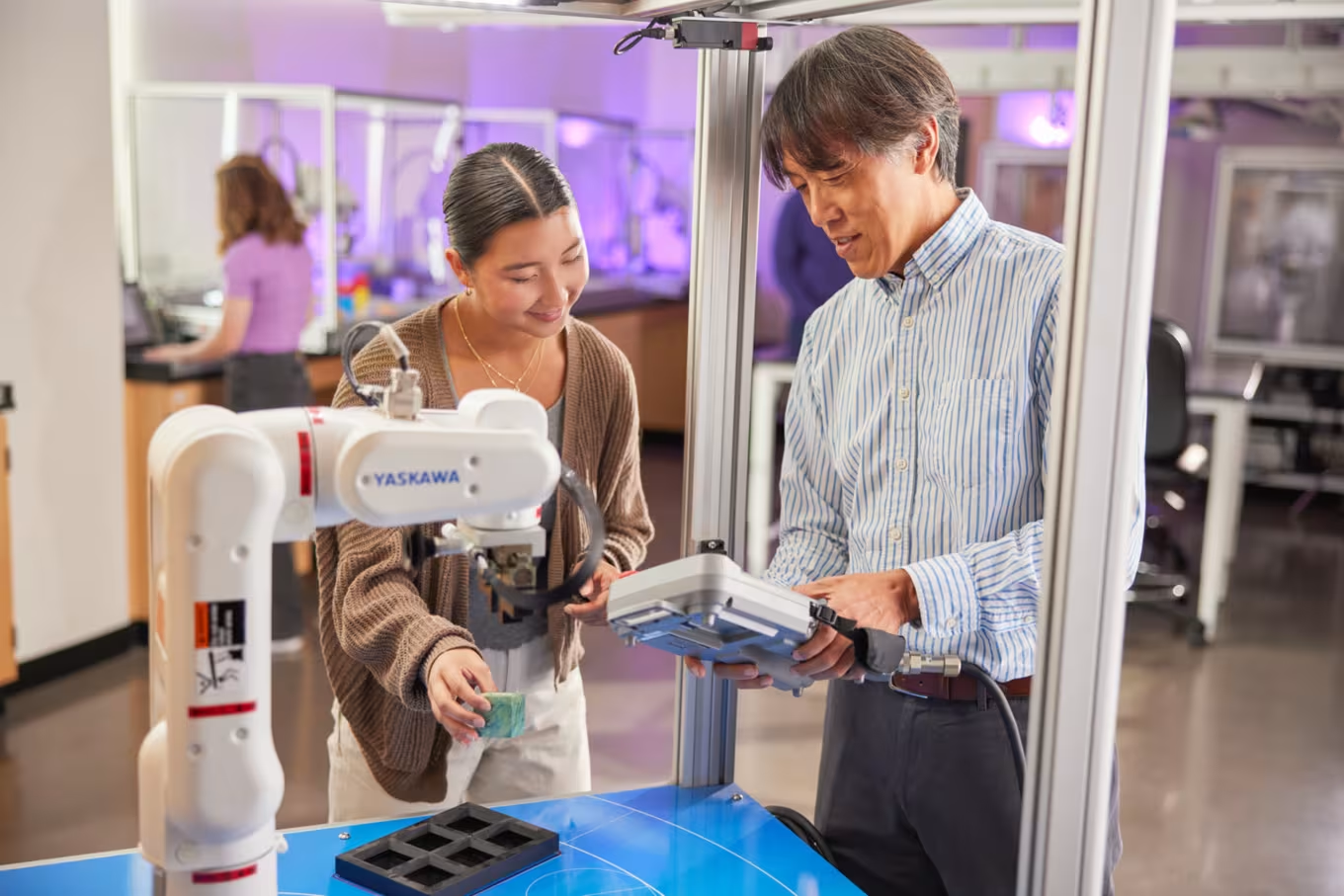
College of Engineering and Technology
journey today.

We're here to help.
Use this menu to discover more about the College of Engineering and Technology and its resources.
The College of Engineering and Technology at Grand Canyon University offers an educational experience with relevant STEM program curricula designed to prepare you to pursue a career in the field of technology and engineering. As one of the growing engineering universities in Arizona,1 our curriculum changes to adapt to new developments in various technology and engineering industries. We teach students to foster traits in collaboration, creativity as well as ethical and social awareness to produce graduates who are well-prepared to excel in the workforce.
Percentage of campus students in STEM or business programs (19,296 Fall 2024)2
The College of Engineering and Technology embraces technological and engineering excellence while cultivating a Christ-centered community of support and encouragement for our students, faculty and staff. Our mission is to ignite the potential within each student, equipping them with the knowledge and skills necessary to become innovative and entrepreneurial leaders in their respective fields. Committed to transformative learning, our graduates are empowered to make a lasting impact by fostering human flourishing, engaging in intentional service and bringing glory to God through their vocations.
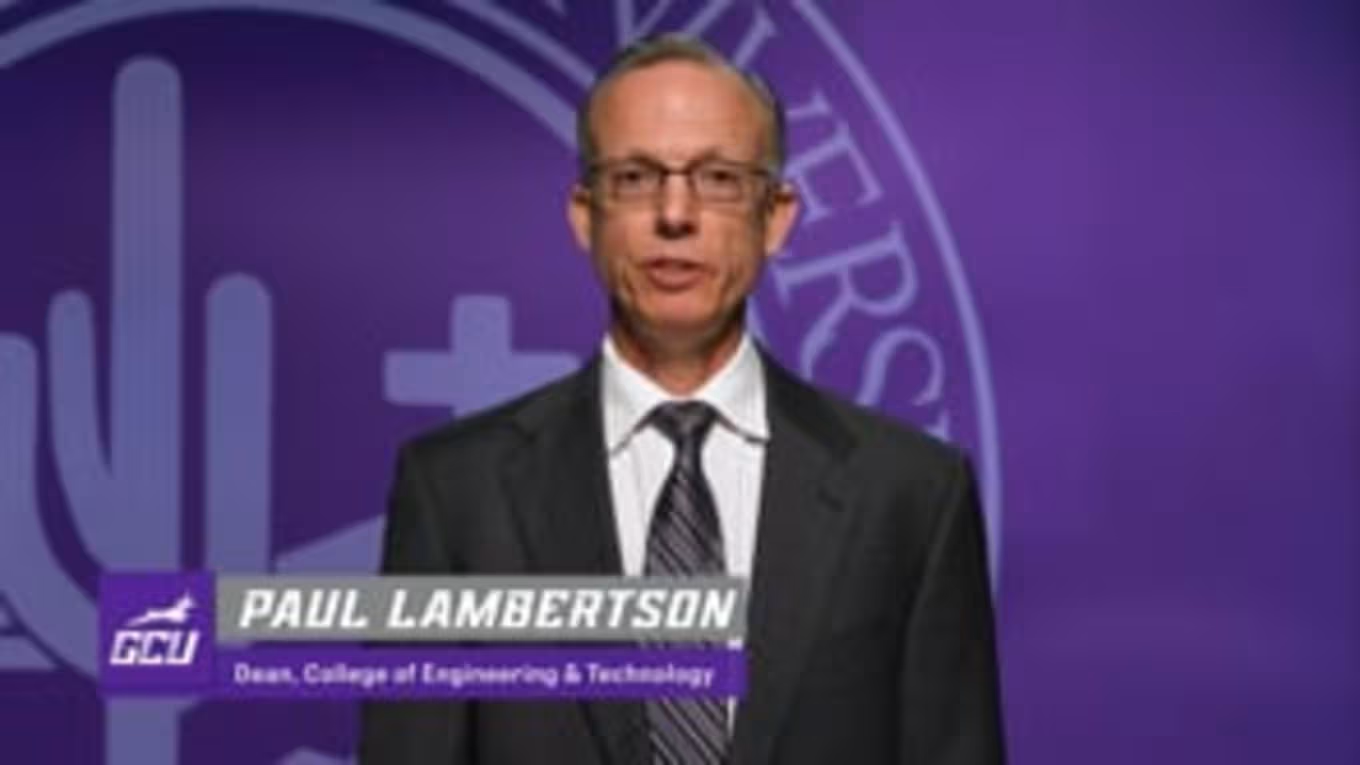
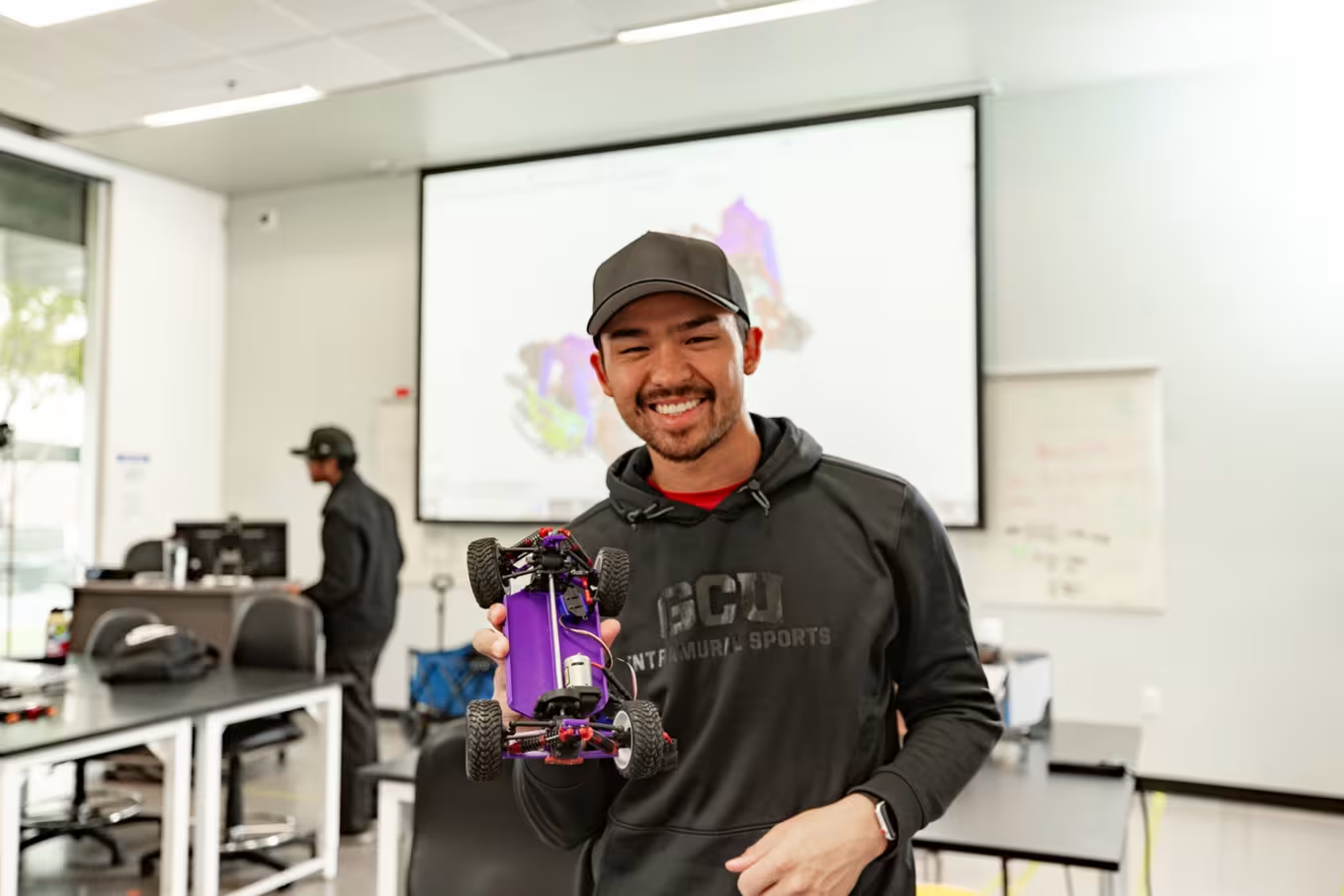
As a leading institution in the field of engineering and technology, GCU remains committed to nurturing innovation, academic excellence and practical skills development for aspiring engineers and technology professionals.
The College of Engineering and Technology offers a range of degrees. Explore our information technology programs, including cybersecurity, software development and computer science, as well as our engineering programs, such as mechanical and electrical engineering. GCU’s many STEM degrees can help build your competencies in various engineering and technology specialties.
We offer diverse disciplines that can help you advance innovation and tackle practical challenges.
With a strong STEM background, you can work toward driving meaningful change in a variety of industries, including:3
Technology
Healthcare
Engineering
Architectural
Software publishing
Environmental
Computer and equipment manufacturing
Scientific research and development
Semiconductor and component manufacturing

Academic minors can enhance your knowledge base and teach valuable skills to use in your chosen field. Choose a minor that complements your major, or pursue a passion while earning your degree.
Many of our degree programs are available in various formats to accommodate your schedule. Regardless of the modality you choose, you can benefit from knowledgeable faculty, support resources and comprehensive assistance throughout your educational journey.
GCU is institutionally accredited by the Higher Learning Commission, which recognizes quality, integrity and continuous improvement in education. We remain committed to aligning our programs with the standards set forth by the accrediting bodies.
Further, many of GCU’s engineering, computer and technology programs meet the Accreditation Board for Engineering and Technology (ABET) standards.
Our 162,653 square foot engineering building provides 21 classroom labs that offer hands-on experiences with advanced equipment, allowing you to apply theoretical concepts to challenges faced in real work settings. Our coursework emphasizes collaboration and innovation, helping you prepare for graduate studies and equipping you with the skills to drive technological advancements.
The individual disciplines taught in GCU’s engineering and technology programs incorporate leadership, curriculum and opportunities specific to your learning environment. In each discipline, students can:
Learn more about your future online or campus learning environment.
GCU provides tools and resources that can help you understand your costs for college, ensuring you make informed financial decisions for your education.
GCU provides a range of scholarships and grants to make education more affordable, rewarding academic achievement and supporting students in their academic journey.
GCU admission requirements vary by program for both undergraduate and graduate students. Discover the specific criteria and steps needed for acceptance.
Engineering and technology graduates from GCU can prepare themselves to enter a diverse and dynamic job market, thanks to their hands-on experience and industry-relevant skills. This versatility can prepare you to contribute to innovative solutions across multiple sectors.
With a foundation in practical applications, graduates can pursue various career paths, including roles as:
Software developers
Engineers
Mechanical engineering technologists
Architectural and engineering managers
Computer and information research scientists
Software quality assurance analysts and testers
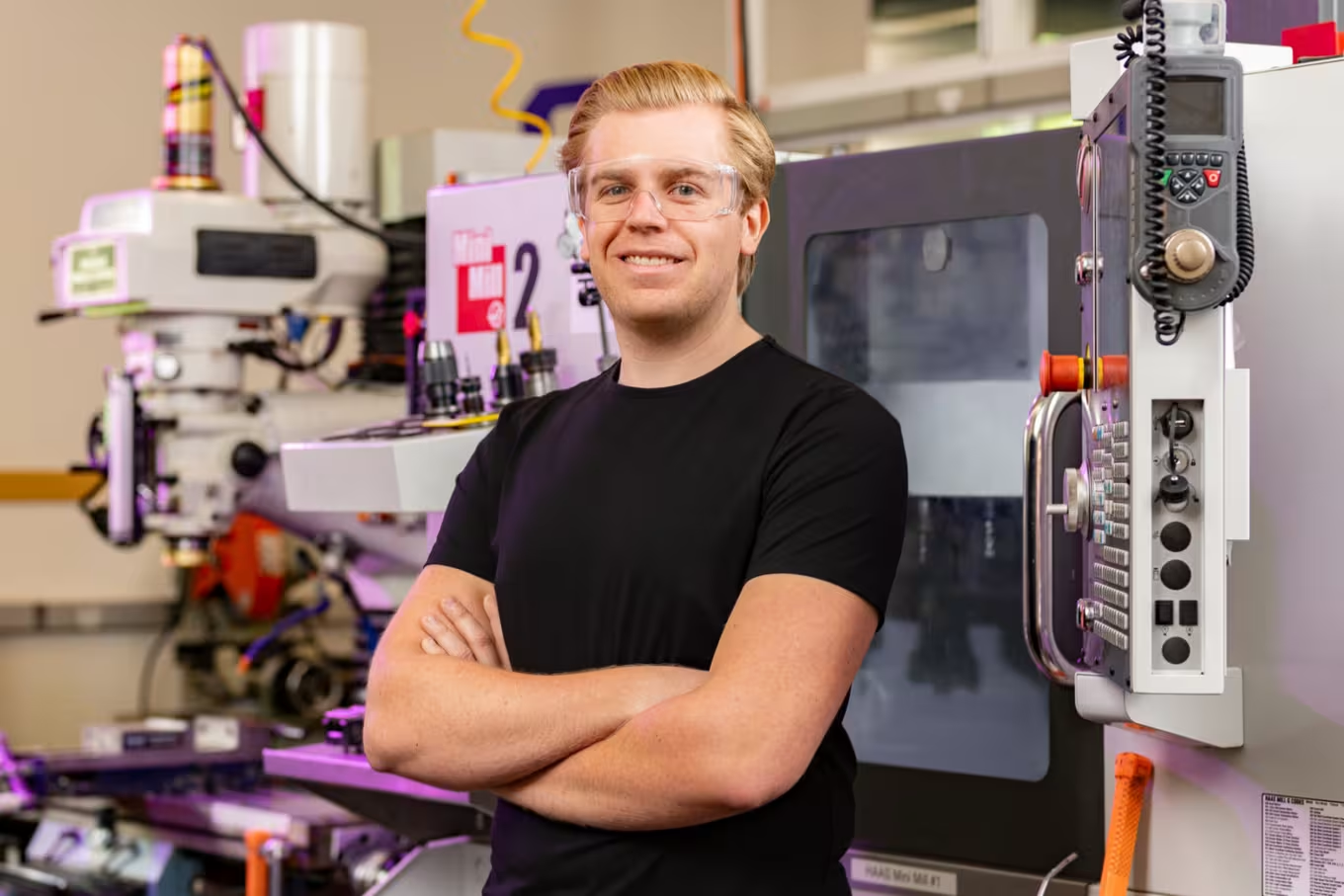
Earning a degree in engineering or technology starts with thorough research. Find answers to your most frequently asked questions regarding the available GCU engineering and tech programs.
The College of Engineering and Technology stands out for our industry-aligned curricula and hands-on, project-based learning that starts in your freshman year. You can benefit from access to labs and industry-standard engineering equipment, as well as professional fabrication shops throughout your program, helping you graduate with the skills and experience needed in the field.
Additionally, our Lopes Live Labs are an open-maker space available to all students from day one, fostering creativity and innovation. From the very first day of class, you can experience impactful, immersive learning with lower student-to-teacher ratios, creating an engaging educational experience.
Admission to technology colleges can be competitive, as many seek students with strong academics and a passion for the field. Factors like GPA and relevant coursework can play a role in the process. At GCU, the admission team is dedicated to guiding applicants through a supportive process, helping you find the right program that aligns with your goals.
When choosing engineering schools to apply to, consider program accreditation, faculty expertise and hands-on learning opportunities. GCU engineering and technology programs offer practical, project-based learning from day one and have been institutionally accredited by the Higher Learning Commission since 1968. Our supportive environment and resources can help you find a program that suits your aspirations and interests.
Deciding whether to apply for an engineering or natural sciences degree depends on your interests and career goals. Our college for technology and engineering offers hands-on programs in areas like civil, mechanical and software engineering, with access to advanced labs and industry-standard equipment. Meanwhile, the College of Natural Sciences provides a strong foundation in fields such as biology and environmental science, emphasizing research and practical experience. Consider your passion for technology or the sciences to determine which path aligns best with your future aspirations.
Our college for technology and engineering programs offers an education that nurtures and supports One Foundation, our statement for providing ethical decision-making within our Christ-centered curriculum.
Through ethical application of skills, content and professional decision making, faculty in the College of Engineering and Technology program integrate the Christian worldview.Foundational skills are introduced in the undergraduate program, while mission critical competencies are built upon as you pursue a graduate program, ensuring our Christian identity and mission align with the mission of the university.
Students in GCU’s STEM programs directly benefit from GCU’s mission by modeling ethical thinking and decision-making to potentially help the community solve societal problems. This takes place during capstone projects and hands-on service opportunities that align with our mission critical competencies of leadership, global citizenship, communication and critical thinking. Students demonstrate their learning both in and out of the classroom while becoming global contributors.
College of Engineering and Technology students experience GCU’s One Foundation principles by integrating faith into their field of study through meaningful discussions, curriculum that adapts to new developments and creating tangible examples. This is demonstrated by fostering a collaboration-focused, inquiry-based learning environment that can prepare students to make creative and ethical decisions in their career. STEM students can carry their faith into their vocation.
STEM programs at GCU promote the principles of human flourishing by focusing on servant leadership in relationships and projects. This is accomplished through a wide variety of STEM-based programs that apply an ethical entrepreneurial mindset within application to society. These programs are taught by knowledgeable faculty who lead students to use their degree to help society by providing service, acting justly and showing compassion toward others.
Students in fields such as computer science, biomedical engineering, cybersecurity and industrial engineering often encounter ethical dilemmas and societal impacts stemming from technological advancement. A theology minor can equip them with ethical frameworks and moral reasoning skills necessary to navigate these challenges. It also encourages them to consider the broader human and environmental implications of their work, aiming for solutions that are not only efficient but also socially and ethically responsible.
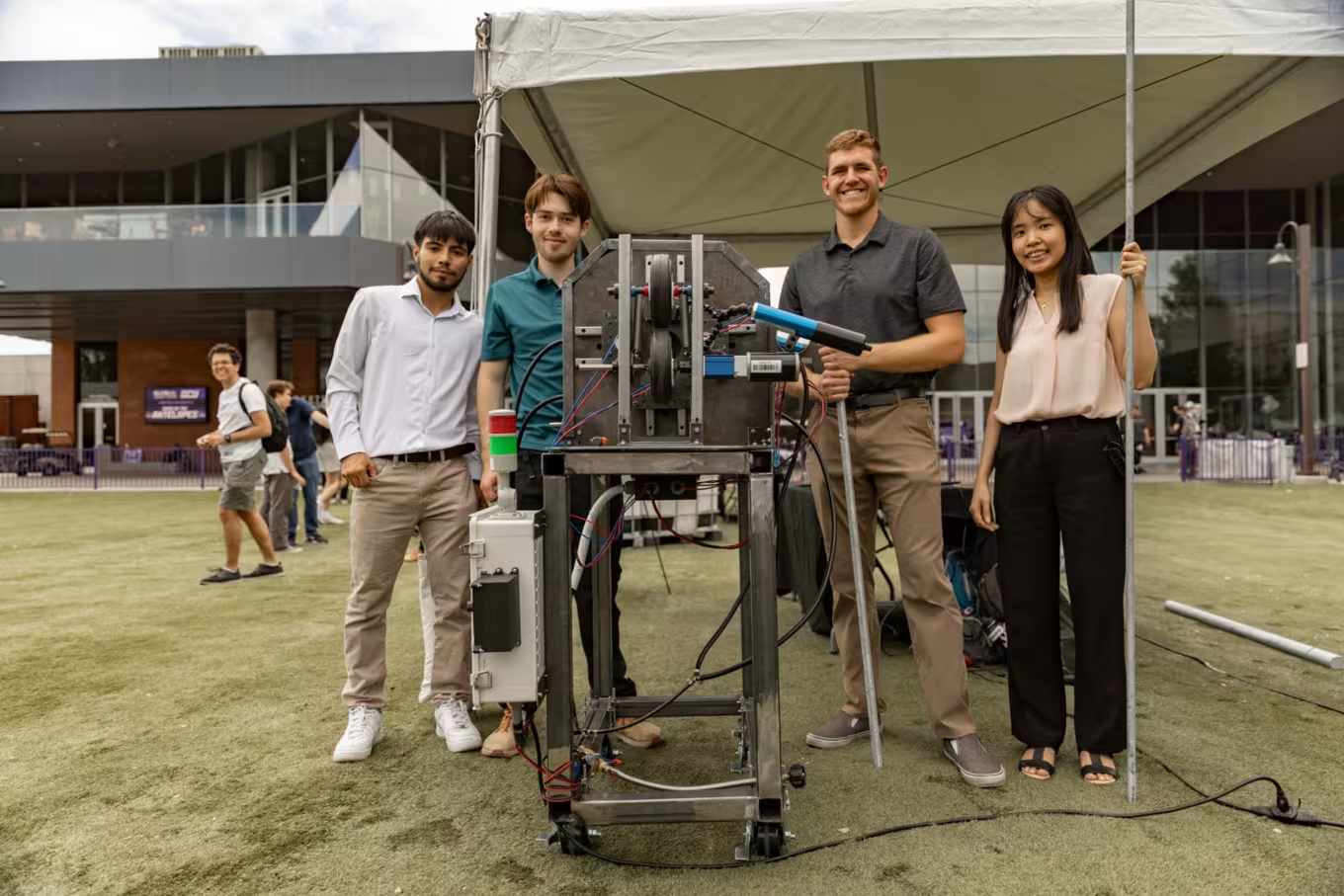
Take the next step by applying online for your STEM degree or requesting more information about GCU's programs.
41 Matching Degrees